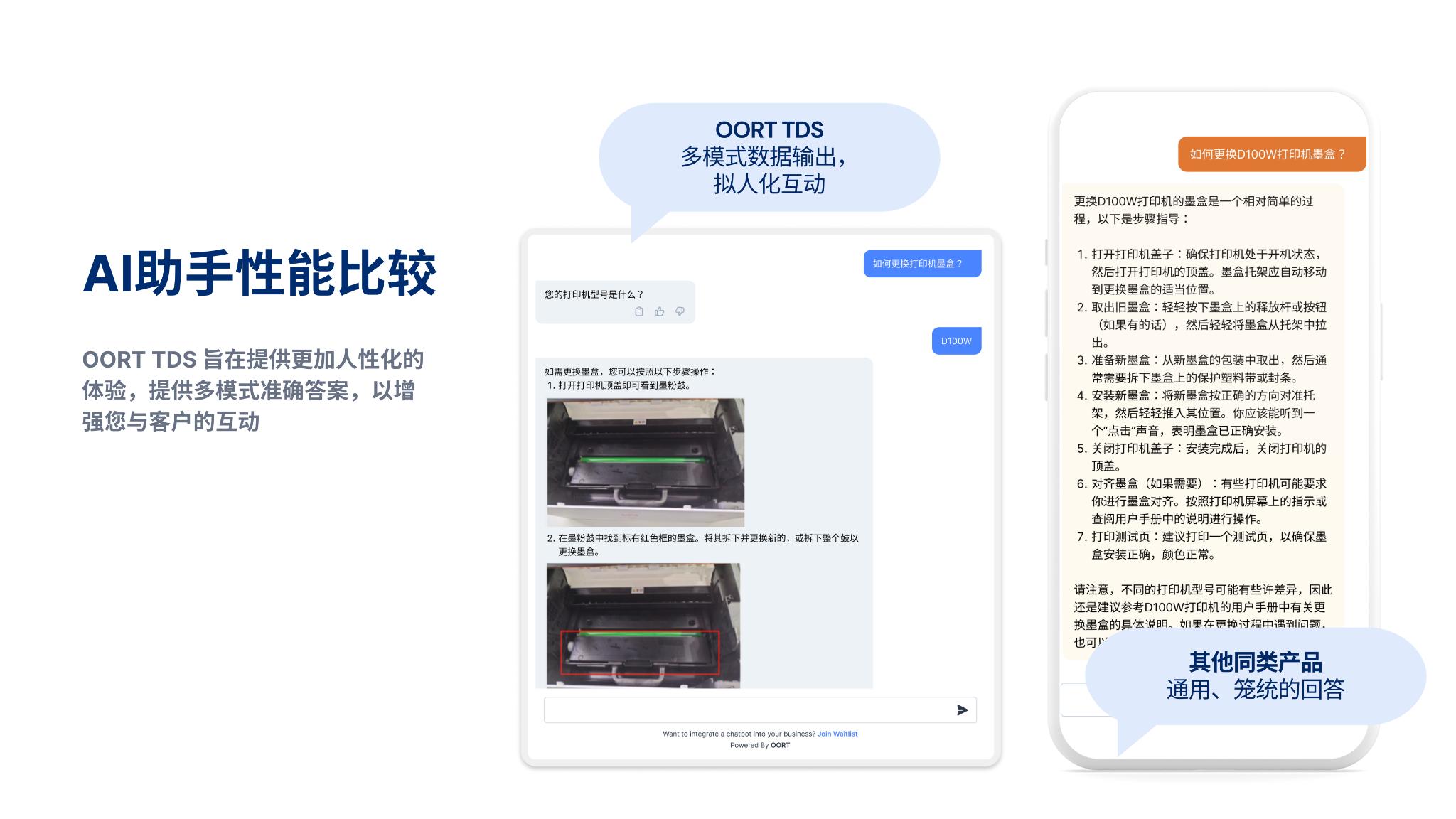The Era of AI Assistants: From ChatGPT to Personalized Multimodal Solutions
-
With the rapid development of artificial intelligence technology, AI assistants have become deeply embedded in various industries and fields. From basic automated response systems to advanced intelligent conversational agents, we are witnessing a technological revolution. However, relying solely on general-purpose models like ChatGPT is insufficient to meet all user needs. Currently, there is a growing demand for personalized and multimodal AI solutions in the market.
General-purpose models like ChatGPT have demonstrated impressive capabilities in handling a wide range of issues. Yet, like all tools, they have limitations in specific domains or scenarios.
First, we must consider the issue of accuracy. Sometimes, due to biases in the training data of AI models, unintended biases may arise. In customer service scenarios, a biased AI assistant might provide inappropriate product recommendations based on customer characteristics such as age, gender, or race. Additionally, for questions requiring specialized knowledge—such as specific hiring strategies in HR—AI might offer seemingly correct but actually misleading answers, potentially leading companies to make poor decisions.
Second, general-purpose AI models exhibit significant gaps in domain-specific expertise. For example, in the retail sector, there are numerous specialized terms related to products, inventory, and logistics. A general-purpose AI assistant may perform poorly when answering questions involving such terminology.
Although general-purpose models offer broad application possibilities, in specific industries and use cases, we still need more specialized and refined tools to meet user needs and expectations.
Personalized AI assistants can significantly enhance customer satisfaction. Compared to traditional, generic AI assistants, personalized ones can provide more accurate and relevant answers tailored to users' specific needs and backgrounds. This deep customization delivers a superior user experience, thereby increasing satisfaction.
For the retail and e-commerce sectors, personalized AI assistants also hold immense potential. By leveraging in-depth user profiling and purchase history analysis, AI can offer personalized product recommendations, significantly boosting conversion rates. This approach not only increases sales but also strengthens customer loyalty, as users feel their needs and interests are genuinely understood and addressed.
For businesses, customized AI can effectively reduce repetitive tasks. Whether in customer service, human resource management, or daily business processes, personalized AI assistants can provide specialized optimizations for specific tasks, greatly improving operational efficiency.
Finally, and equally importantly, as data privacy and security concerns become increasingly prominent, personalized AI solutions offer users a higher level of data protection and privacy settings. This not only provides peace of mind for users but also aligns with increasingly stringent data protection regulations.
With technological advancements, single-mode text interaction can no longer fully meet user needs. Modern AI assistants must be capable of processing multiple forms of input and output, including text, audio, images, and even video. Multimodal interaction provides users with a richer and more intuitive experience.
In customer service scenarios, multimodal interaction demonstrates significant potential. Consider a typical situation: when a user encounters a product issue that is difficult to describe in words, they can directly upload an image or video of the problem. This approach not only accelerates problem identification and resolution but also significantly improves customer satisfaction. More importantly, this interaction method provides customer service teams with additional contextual information, leading to more accurate and timely solutions.
In the retail sector, the application of multimodal AI has revolutionized the shopping experience. Customers can send an image of a product to an AI chatbot, which can quickly identify and provide detailed information, reviews, or related recommendations. Additionally, through audio and video introductions, retailers can offer more vivid and comprehensive product presentations, thereby enhancing customers' purchase intent. This not only increases conversion rates but also provides customers with a more immersive shopping experience.
Overall, multimodal intelligent solutions have diverse application scenarios and great potential to establish a closer, more efficient, and more satisfying connection between businesses and consumers.
Oort TDS (Talk-to-Data Service) is an AI agent construction platform based on large language models (LLMs), supported by the decentralized data cloud OORT. Oort TDS enables companies and individual users to easily create customized AI agents with maximum privacy and cost-effectiveness.

Oort TDS not only provides multimodal output options, allowing users to interact through text, images, audio, video, and more, but also offers high levels of personalization and customization. This enables businesses to tailor solutions according to their specific needs across various industries and markets, including customer service, retail, and education.
In customer service, it enables real-time query responses, 24/7 operation, and emphasizes data privacy protection. For human resources, Oort TDS assists with candidate screening and interview scheduling through intelligent automation, improving recruitment efficiency. In retail environments, it facilitates product recommendations and automates customer interactions. As a personal assistant, Oort TDS handles reminders, scheduling, and data analysis, aiming to save time and deliver personalized services. With its multimodal data support and data privacy-first approach, Oort TDS has the potential to provide solutions across multiple application scenarios.
With the proliferation of 5G, IoT, and other advanced technologies, we can anticipate that future AI assistants will become more intelligent, personalized, and multifunctional. They will integrate more seamlessly into our lives, offering greater convenience and value.
While pursuing technological advancements, we must also remain vigilant about ethical and privacy concerns, ensuring that AI technology benefits humanity while respecting individual rights and choices.
Although general models have brought unprecedented convenience, future trends indicate that personalized and multimodal AI solutions will become mainstream. We are in an era full of opportunities and challenges, and only through continuous innovation and learning can we ensure success in this AI revolution.
